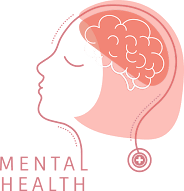Cause and Effect of Gender Inequality and Rights on Women's Mental Health in the Workplace
It's no
secret that society has decided to position women on a spectrum with a man on a
high or low worth, but seen less than a male who is granted dominance for over
a century of social transformation via the corruption of social justice. The
lingering impacts of these ongoing social challenges of gender discrimination
have caused women to conclude that our mental wellness and health are fragile
and at risk. We are learning and developing techniques to better equip
ourselves to deal with the emotional imprint society has left on women's mental
health by focusing directly on these issues.
Suffering The Impact of Gender Inequality
Women
fundamentally suffer from several mental health troubles since gender
inequality continues to have a poor influence on many health outcomes as a
result of society's continual activities aimed at making no means to view
equality for women. Women might attempt to internalize their feelings,
which may lead to isolation, and despair. Effects many causes one or more of
the many disorders and concerns on women's mental well-being to arise:
- Suffering from Anxiety, PTSD, Depression, and Stress
- Women are almost four times more probable than males to have difficulty with prevalent mental health issues
- Bias within the workplace and community
- prone to becoming uninsured
Women are nearly twice as
likely as males to suffer from mental illness, according to Yu (2018). This
gender gap in depressive illnesses may be related to societal inequities and
national living standards. Currently, these disparities are not reflected in
health policies. Gender inequality is a long-standing issue that has harmed
women's health. Women are also more likely to experience numerous
socioeconomic stresses, which are important determinants of poor physical and
mental health outcomes. However, Oram, Khalifeh, and Howard expel they are
essentially preventable. Discrimination against women, often known as gender
disadvantaged status, inequalities, or disparities, refers to a variety of
situations as well as institutional inequities. Some of these are the higher
possibility that women will hold positions of inferior authority in the
workplace and poorer status within societies where women are not safeguarded
from abuse or are deterred from seeking an education and living independent
(Hosang & Bhui, 2018). Women have succumb to many ordeals of sexual
harassments and abuse within the workplace from the perpetuating acts and
mistreatment that a women is "Not Entitled" to receive reward or
acknowledgement without an offering of themselves.
Mental Health and Gender Pay Gap
We discover that women who work
in comparable positions to males earn less than men, leaving women to suffer
from numerous mood disorders such as depression. Depressive mood states have
created several obstacles for women's mental health, preventing many from
feeling safe in society for the equality of themselves and their
families. Gender stereotypes may additionally impact how men and women
exhibit psychological discomfort and manage uncomfortable emotions that damage
their well-being (for example, grief, anxiety, and rage). Furthermore, this
gender role expectation creates an opposing one for women, namely the belief
that it is typical for women to be capable to easily articulate their feelings
of anxiety to others (Ali & Adshead, 2022). Women experience a much
greater incidence of anxiousness and depression, whereas men possess a greater
incidence of drug use problems and disruptive behaviors. Reduced salary
renders it more difficult for women, particularly single women, to advance
economically. According to Vigod and Rochon (2020), they discussed
gathered evidence from workplace research demonstrating that daily
inconspicuous behaviors and words can adversely affect a woman's sense of psychological
well-being and accomplishments in a way which goes often unrecognized beyond of
a woman's experience, and is frequently left with the woman to determine how
and whether to manage it. This strongly shows that interpreted gender
discrimination plays a significant role in a woman's mental health. Of course,
biological study on the etiology of clinical depression in women is vital.
Meanwhile, studies like those mentioned above serve to highlight and emphasize
that the global "Gender gap" in depression has significant social
influences.
References
Ali, S., & Adshead, G. (2022). Just Like a Woman: Gender Role Stereotypes in Forensic Psychiatry. Frontiers in psychiatry, 13, 840837. https://doi.org/10.3389/fpsyt.2022.840837
Hosang, G., & Bhui, K. (2018). Gender discrimination, victimisation and women's mental health. The British Journal of Psychiatry, 213(6), 682-684. doi:10.1192/bjp.2018.244
Yu S. (2018). Uncovering the hidden impacts of inequality on mental health: a global study. Translational psychiatry, 8(1), 98. https://doi.org/10.1038/s41398-018-0148-0


Comments
Post a Comment